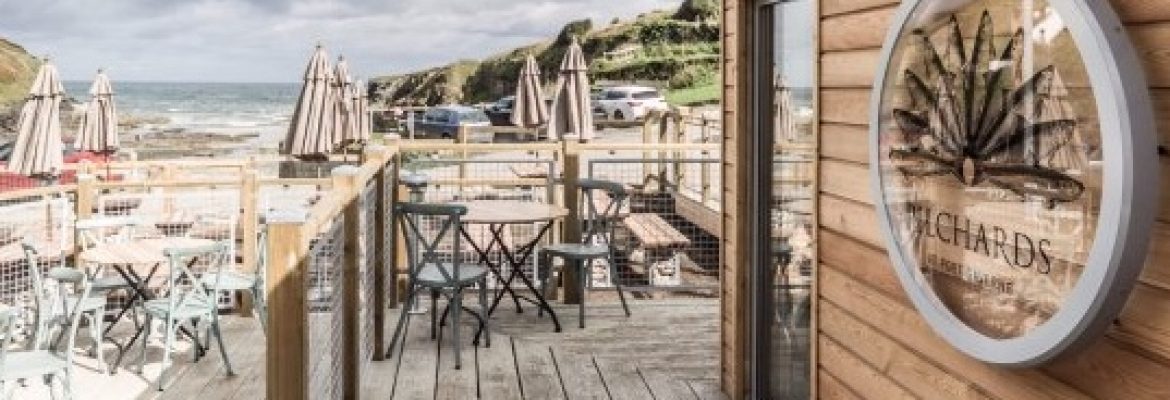Pilchards at Port Gaverne Michelin Restaurant
Park in Port Isaac and walk over to this modern timber and glass building with a large terraced garden, which overlooks the bay where the famous Cornish pilchards were once landed. The seafood-orientated menu offers both small and large plates, with whole fish grilled over charcoal a speciality. Pilchards at Port Gaverne is our beach cafe 30 seconds from the hotel. At high tide, the sea’s only a few yards away from the tables on the front decking. The perfect spot to while away an afternoon. Or come inside for shelter from the sun. All are welcome at Pilchards – from sandy kids and thirsty ramblers to people in search of new tastes 2021 Michelin Plate. The menu changes daily. Snack at tapas, share a plate or have one all to yourself. Watch out for our special events on the blackboard. Drinks range from Cornish craft beers, cocktails and proper wines to teas, coffees and hot chocolate.
For such a tiny, quiet fishing village in a secluded cove, Port Gaverne’s played more than its fair share in Cornwall’s history. With the establishment of the great slate quarry at nearby Delabole in the nineteenth century, Port Gaverne developed into a thriving trading port. Despite being a tiny hamlet, for some time it was one of Cornwall’s most important and profitable pilchard and herring ports. So successful was the industry that four huge cellars were built in Port Gaverne to cope with all the fish. For most of the nineteenth century the narrow streets were full of the noise of carts trundling along, laden with slate, where they were unloaded onto the waiting sea ketches. But with the arrival of the railway in 1893, Port Gaverne began to decline as a trading port. The peace and tranquillity, so valued by visitors today, returned.
Boat building in Port Gaverne. During the Victorian era, the flourishing boat building industry gave a vital boost to the local economy, with single-masted smacks and two-masted luggers up to 77ft being built. One of the very last ships to be built here was named the ‘Surprise’. The owner had ordered it be built from salvaged wood believing it would be cheaper. The boat was named when the owner got the final bill. Port Gaverne and the slate road. Until the railway reached Delabole, Port Gaverne was the main export route for this world famous slate. You can find a fascinating overview of Port Gaverne’s history on slate plaques by the beach.
Cornwall Multi-Entry Multi-Directional Visitors Guide © Simon Newbound


